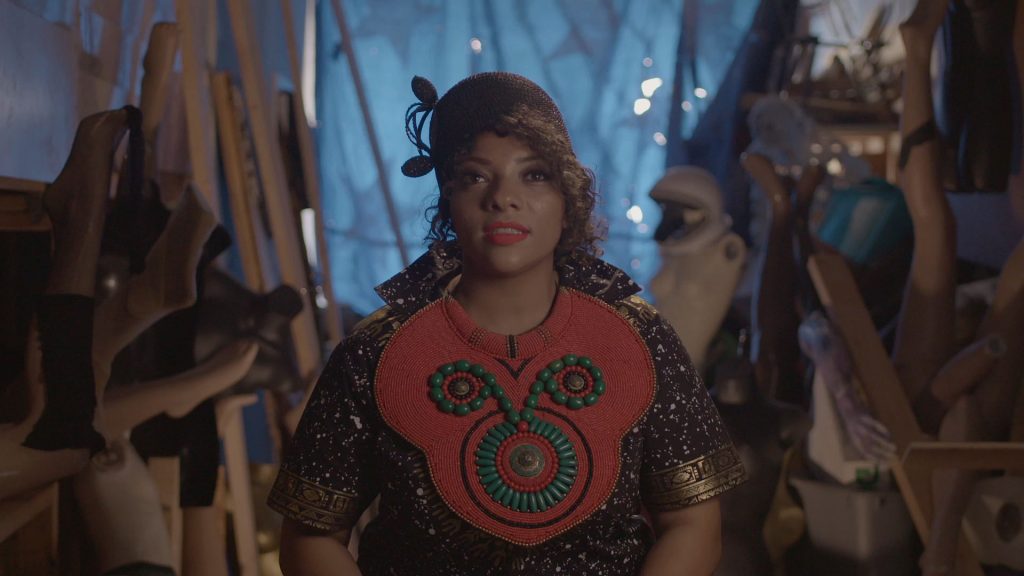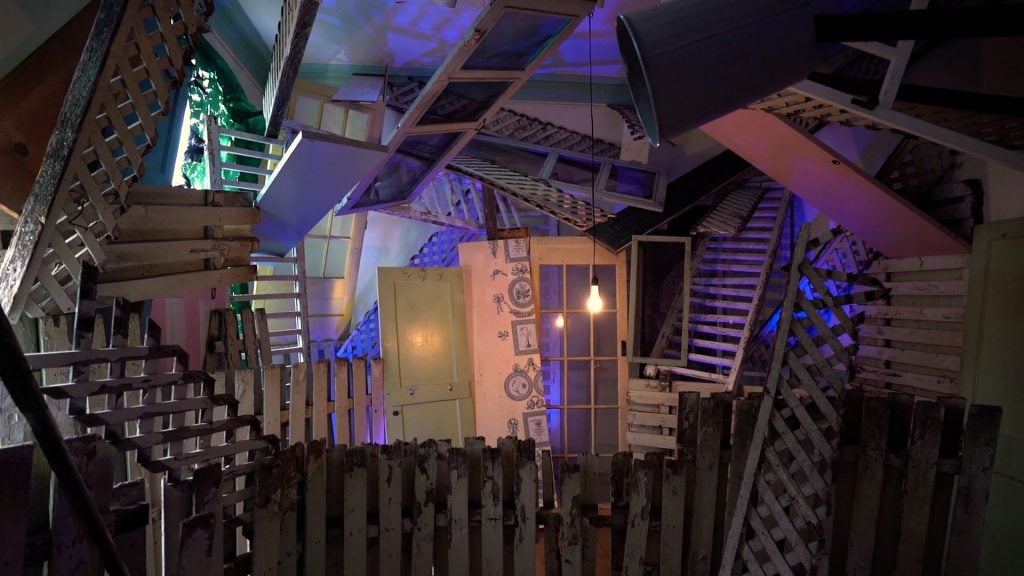On View
‘We’re Going to Get There’: Watch Artist Abigail DeVille Stage Guerilla Performances Inspired by the Great Migration
As part of a collaboration with Art21, hear news-making artists describe their inspirations in their own words.

As part of a collaboration with Art21, hear news-making artists describe their inspirations in their own words.

Artnet News

On Friday, marches, parades, and processions across the United States will mark Juneteenth, the 155th anniversary of the abolition of slavery. In 2014, the New York-based artist Abigail DeVille staged a procession of her own through the streets of Harlem. The Great Migration sought to express both the joy and the pain of the African American experience. The event—which the artist also organized in Anacostia and Baltimore—featured dancers, marching bands, and community members all wearing DeVille’s wearable sculptures, which are meant to signify the weight of history.
“History is the tale of the victor, right? It’s garbage,” DeVille said in an exclusive interview for Art21’s “Extended Play” series in 2018. “The first thing to go in history is the atrocities. Nobody wants to remember that. Cover up—whitewash—is all attributed to the inability to get over slavery.”
The Great Migration performances reference the era between 1914 and 1970, when six million African Americans traveled to the North looking for better opportunities. But DeVille’s processions also serve as a kind of elegy to rapidly gentrifying neighborhoods at a time when the descendants of those migrants are now “being pushed out of the places they moved to,” DeVille explained. “Just because it was north didn’t mean that the racial tensions had gone anywhere.”

Production still from the Art21 “New York Close Up” film, “Abigail DeVille Listens to History.” © Art21, Inc. 2018.
Just as she views traditional American history as “garbage,” DeVille uses discarded materials in her own work, challenging what sort of media are considered high and low. She incorporates tattered flags and old furniture into engulfing, room-size installations that aim to capture the overlooked histories of Black Americans in all their complexity and grandeur.
“Love feels like this powerful force that actually could enact change more than hate ever could,” DeVille said. “I think hate causes a kind of exhaustion. It’s something for me never to lose sight of—or to constantly be reminded of—that we, as a people, we’re going to get there.”
Watch the video, which originally appeared as part of Art21’s series New York Close Up, below.
This is an installment of “Art on Video,” a collaboration between Artnet News and Art21 that brings you clips of newsmaking artists. A new series of the nonprofit Art21’s flagship series Art in the Twenty-First Century is available now on PBS. Catch all episodes of other series like New York Close Up and Extended Play and learn about the organization’s educational programs at Art21.org.